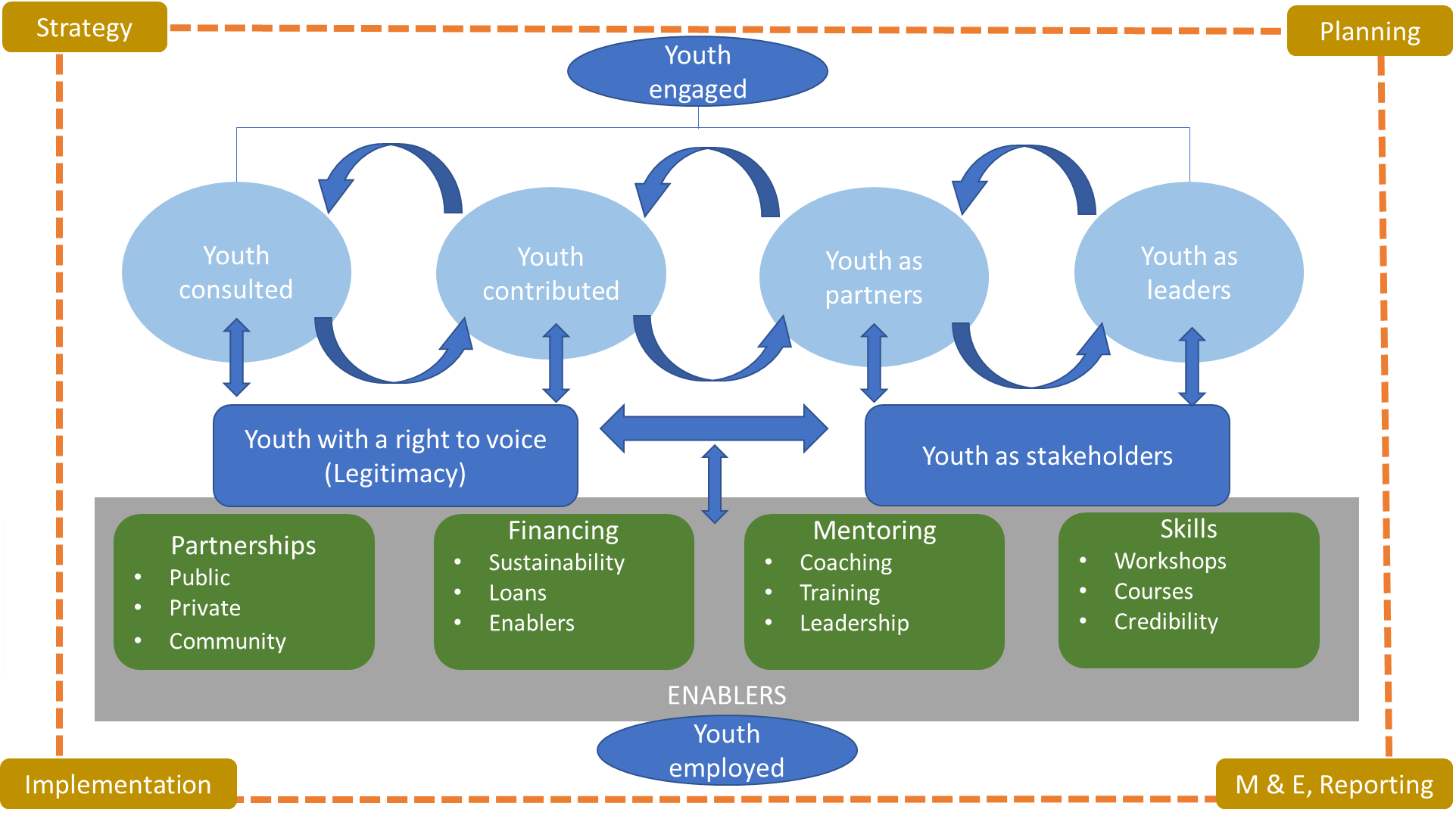What role can young people play in shaping programmes that affect them? Why is it difficult for young people to find decent employment? What can be done to simultaneously promote meaningful youth engagement and decent jobs for young people?
We were tasked with finding the links between these questions as part of a collaborative project between the London School of Economics (LSE) and the International Labour Organization (ILO). Our assignment was to develop a model of intervention that provides actionable recommendations on how to effectively foster meaningful youth engagement and youth employment simultaneously. The framework we developed will feed into the work of ILO PROSPECTS and the Global Initiative on Decent Jobs for Youth on developing a training package on meaningfully engaging youth people in youth employment programmes.
LSE’s consultancy provided the framework for Master’s level Development Management students to be paired with the ILO, but each of our team of four handpicked this project among over a dozen opportunities. Hasnabila was interested in expanding her knowledge on youth capacity and capability-building, while Mona comes from a country in the middle of a youth employment crisis, so she knows firsthand the difficulties for young people to find jobs. Natalie hoped to turn public policy and economic theory into real-life interventions, and Alexandria drew from her experience in youth empowerment initiatives. Each team member originated from a different country, spoke a different first language, and brought a unique academic and professional background to the table.
The ILO gave us the tools we needed to take charge of this research project as youth consultants and partners, and asked to contribute tangible recommendations in a validating example of the very kind of meaningful youth engagement we hoped to understand better.
We started by identifying the research questions. For our limited scope of research the topic was almost intimidatingly broad, but quickly with the help of our ILO colleagues we narrowed the focus and aim. We distributed tasks to manage our time and met bi-weekly with the ILO to understand their requirements, brainstorm, discuss resources, and keep everyone up-to-date. We interviewed four ILO experts, reviewed internal evaluations, and conducted extensive research from publications, ongoing projects and case studies, and definitive work from others on the subject.
Our final project defined meaningful youth engagement, laid out comprehensive research, and proposed a framework that emphasizes the connection between youth employment and meaningful youth engagement within project and programme lifecycles. We named the core of our findings the “Interaction Mechanism,” which we illustrated in the graph attached below.

Our definition of meaningful youth engagement was created alongside the ILO team and drew from the definitions of many international organizations, most notably the one highlighted in the Meaningfully Engaging with Youth: Guidance and training for UN staff by UNESCO. Using this toolkit’s matrix for measuring the efficacy of MYE, we established four criteria which indicate that youth are being substantively engaged: they are Consulted, asked to Contribute, respected as Partners, and empowered as Leaders. We also found two principles of youth’s role in the community: youth have a right to have a voice in the community, which provides their input with legitimacy, and they have a vested interest in the outcomes of community initiatives which elevates their role as stakeholders.
Youth employment was a more technical concept to explore, but we focused our efforts on seeking the factors which effectively enable decent employment. Through our analyses we found that the are various enablers for youth employment and decided to focus on four categories that we considered critical: Partnerships, Financing, Mentoring, and Skills. These enablers must be present in community networks and project lifecycles if there is an expectation young people will be able to access decent jobs.
One particularly important finding from our work was the way in which youth employment enablers also enable meaningful youth engagement.
We framed the discussion this way: What tends to be said to avoid meaningful youth engagement? We usually hear statements such as, “nobody takes the youth's opinion seriously,” “youth don’t have the skills to take charge in this space,” or “they don’t understand the outcomes we are aiming for here.” Or maybe, “the opportunities to engage are there for them if they’ll take advantage of it.”
As it happens, the youth employment enablers also address these meaningful youth engagement avoidances.
If nobody takes young people’s opinions seriously, then we need to give them credibility and create spaces where they can communicate their opinions and needs. If they don’t have the skills to engage in their community, then we need to equip them with more skills and build their capacities. If young people don’t understand the goals and outcomes, then we need to train them and mentor them to help them find their footing in the space. If opportunities do exist, then whatever is holding youth back from seizing opportunities should be addressed - maybe they need a financial safety net, or maybe there has been no guidance on how to find these opportunities. And for all of this to happen, partnerships in the community have to be strong and cooperative, particularly with young people themselves through their networks and organizations.
The two concepts interact with each other to remove barriers to youth employment, remove barriers to meaningful youth engagement, and to create environments which allow youth to be equipped with the skills and capacities they need to engage in their community and find decent employment. The conclusion, as we discovered, is that there is a synergistic relationship in which fostering one will, in turn, foster the other, in a mutually empowering relationship.
Working with the ILO was smooth and insightful, and our experience was overwhelmingly positive. Our team has been left with nothing but gratitude for having our young voices heard and the opportunity to engage in this project.
Learn more about the PROSPECTS initiative, Advancing Young People’s Engagement and Meaningful Participation in the PROSPECTS Partnership, jointly implemented by the ILO, UNHCR and UNICEF.
Article
Global
Global